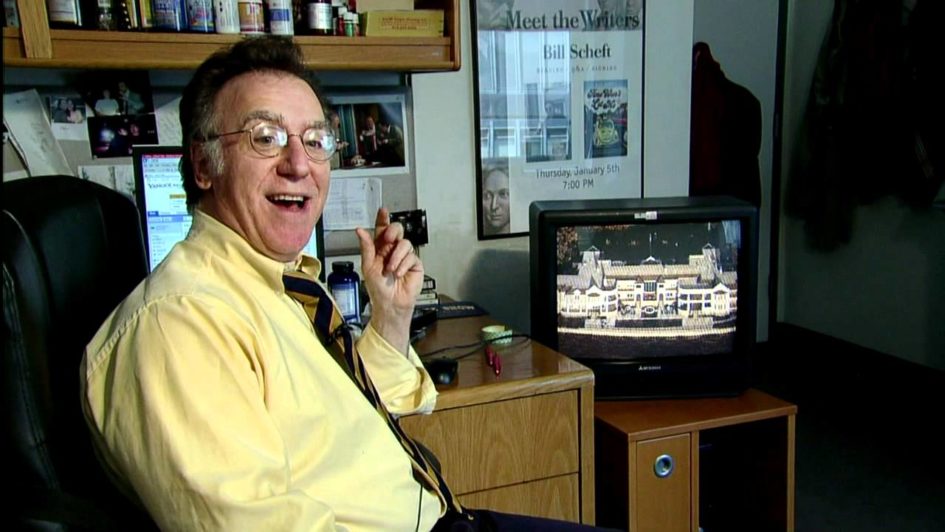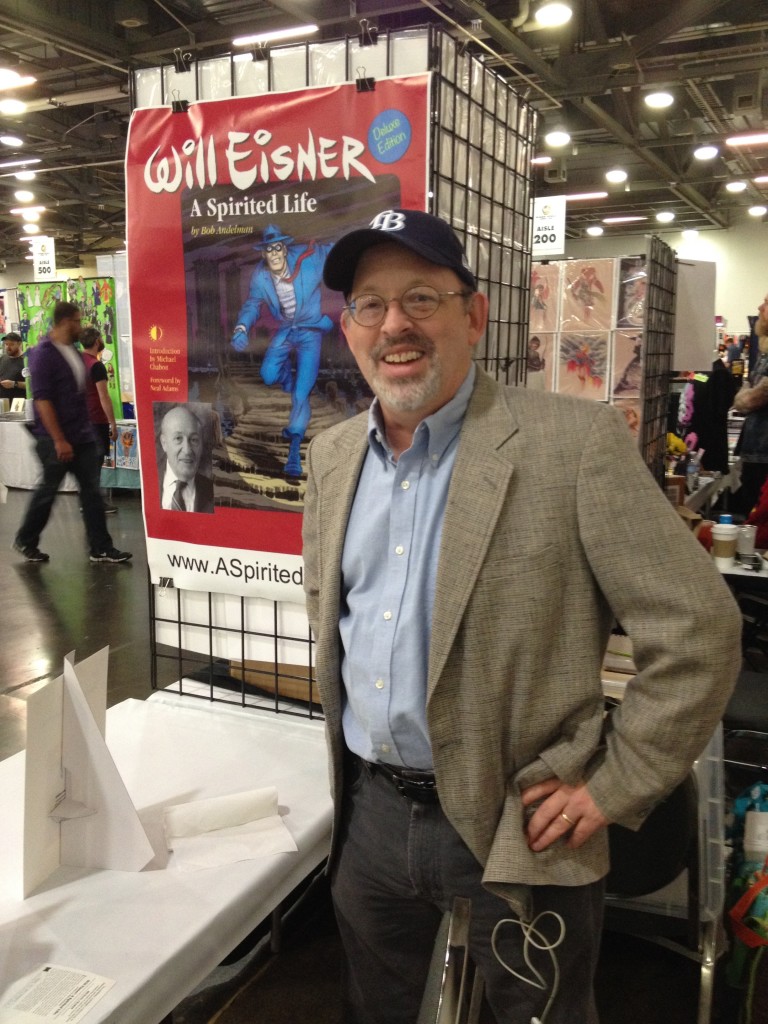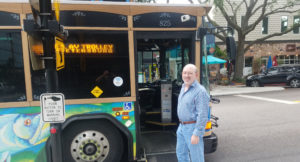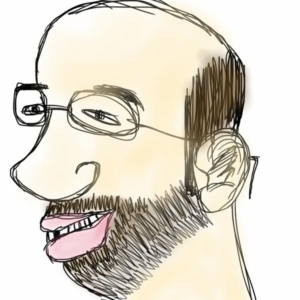By Bob Andelman
May 1985
“Up until tonight, my career was going beautifully… I remember my mother said to me, ‘Michael, don’t go to law school! Go down to St. Petersburg and entertain in a bar!’”
Michael Fetcher, a young comedian from South Carolina, was grousing to an audience at the Tierra Verde Comedy Club in south St. Petersburg, one of t=five such venues in the Tampa Bay area.
On this particular night, Fetcher’s act was going over like a lead balloon.
“It’s a bitch to be an opener,” granted Tierra Verde manager Rob Douglas. “It’s even more of a bitch to pay an opener.”
Besides Tierra Verde, there are two comedy clubs in Clearwater, G. David’s (featuring and owned by “the funniest man alive,” G. David Howard) and Kisses, and a pair in Tampa, Comedy Corner and the granddaddy of them all, Giggles.
The popularity of comedy in this area – Jay Leno, Pat Paulsen, Mike Binder and Sinbad turn up regularly – has even led to publication of a slick magazine to cover the subject, appropriately dubbed Comedy Magazine.
John Cochran will not hesitate to tell you who is responsible for the boom in Tampa Bay yuk shops. “I opened up four of them,” he brags without exaggeration, referring to his present location, his earlier club (now Comedy Corner), the Tierra Verde spot and another in Sarasota. Nationally, there were once 13 Giggles Comedy Clubs where now there is only one. The first was opened by Cochran six years ago. (Six survive today under different names, he noted.)
“John Cochran was my first exposure – not just mine but this market’s,” Douglas confirmed. “He brought comedy to this market.”
Douglas, who promotes music shoes in the adjoining Le Club, said comedy is not unlike music in management terms, calling it a “real political business.”
Comedy began as a one-night a week experiment at Tierra Verde in 1982, finally displacing contemporary jazz in May of 1984. The two-our-show format – adapted from Giggles – revolves around an opener, featured performer and headliner, each of whom is introduced and yanked at the discretion of emcee Frankie Cramer.
Cramer “has been with me almost since the beginning,” Douglas said of his friend. “He’s really grown a lot. He’s got a good sense of humor, he’s gregarious.” The emcee has also become the voice of Tierra Verde’s Comedy Club on radio as an egomaniac trying to convince listeners to come see “The Frankie Cramer Show.”
(During an interview with Douglas, Cramer leaned in and said, “If my name is in (the story), say the ‘James Dean of Tierra Verde.’”)
According to Douglas, the comics he hired get better according to their position on the bill. “That’s also commiserate with their pay,” he added. “A good opener – which is almost a contradictory term – will earn $250-$325 a week. A good middle will earn between $400 to $600 and a good headliner will earn between $800 and $1,200 a week.”
Tierra Verde seats 125 people, including 33 at a circular bar at the rear of the room. It’s a small, close atmosphere, not unlike Caroline’s in New York. Giggles, on the other hand, can find room for 350 people at capacity, a 33 percent increase over its previous quarters. “And we fill it,” said Cochran.
Most comedy clubs offer a meal with their show, not unlike dinner theatres, although show-only admission is available. At both Giggles and Tierra Verde, the combination is $15.95 while show-only tickets are $5.
With just 5,000 copies of its premiere issue distributed in Tampa Bay, Comedy Magazine somehow found its way to interested clubs all over the country and caused a change in the thinking of its first-time publisher.
Ruth Erickson had such a good experience with the local edition that the second issue will be available nationally.
“This is such a good market to test a lot of things in, simply because it’s growing so fast,” she said of her $15,000 experiment.
Different from the National Lampoon, Comedy Magazine seeks to write about what’s funny, not create it, although that may happen yet.
The first issue profiled Dom DeLuise, Jay Leno and local radio personality Cleveland Wheeler. Issue two – scheduled for May – has Billy Crystal set for the cover, with additional stories on Elaine Boosler, Julie “Earth Girls” Brown and “the humor of Salvador Dali.”
Doulas does not believe all five bay comedy clubs can continue to co-exist. “Absolutely not,” he insisted. “We’re a pretty big area, spread apart, but there’s no real consistency in the quality.”
In his own way, Cochran agreed. There’s enough talent, no question about that,” he said. “Not in this area, but nationwide”
Bill Scheft, a recent Tierra Verde headliner, is the regular emcee at Catch A Rising Star in New York. He knows what Douglas means about quality.
“There’s so many clubs in so many cities,” Scheft lamented, “you don’t even have to be good. If you’re just going from city to city, you certainly make enough money to live on.”
Comedy thrives on the same upwardly-mobile young market that has made franchise operations out of cinema and brew joints. They want to eat and drink and carouse while being entertained, no longer willing to sit still in a dark theatre or stand elbow-to-elbow in a crowded concert hall.
“I think people are always going to want to drink and laugh,” Cochran said. “Comedy is hot.”



